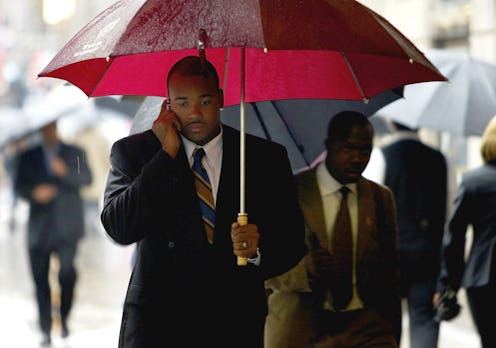Life
Do Ivy League Degrees Matter In the Job Market?
People tend to assume that getting into an Ivy League school means your life is bound to be successful; however, not only is that not the full picture, it also applies to some students more than others. New research suggests that an Ivy League education brings you far more success if you're white. Because apparently an Ivy League education isn't all that different from everything else after all.
The Study:
In a study recently published in the journal Social Forces, Michael Gaddis, a sociologist at the University of Michigan, decided to test out just how far an Ivy League degree gets recent graduates on the job market based on the race of the applicant. He created fake job profiles for various applicants and used them to apply for over 1,000 jobs in three different regions of the United States.
Some of the job applicants "attended" Ivy League schools, while others' resumes listed less prestigious, though still respected, universities — Duke, for example. Furthermore, some of the applicants had names most common among black Americans, while others had names most common among white Americans based on data from the New York State Department of Health: Gaddis used the names Jalen, Lamar, and DaQuan for black male applicants; Nia, Ebony, and Shanice for black female applicants; Caleb, Charlie, and Ronny for white male applicants; and Aubrey, Erica, and Lesley for white female applicants.
Once the profiles were created, Gaddis gave each fake applicant one of two resume templates, sent off the applications, and waited to see who would respond.
The Results:
As you might expect, going to an elite school raises the number of responses an applicant receives, regardless of their race. But black applicants were also much less likely than their white classmates to get either a phone or email response. And, in fact, black applicants from Ivy League schools were only slightly more likely to get a response than white applicants from less prestigious schools.
Moreover, the jobs that did express interest in the applicants coded as black in the study tended to pay less. Overall, the jobs for which black applicants received responses paid about 10 percent less than jobs that expressed interest in white applicants.
In other words, employers are still biased against hiring black people even if they attended an Ivy League school.
The Takeaway:
"A popular notion in US society is that education is the great equalizer," Gaddis writes in the paper. But this is clearly not born out by the research. In fact, he notes, "I find significant evidence of racial discrimination in a section of the labor market that demands highly educated employees. The opportunities that arise upon graduation from an elite university are not equal between whites and blacks."
Becoming more educated doesn't make people immune from the types of discrimination that hold black people back in our society. Similarly, being educated doesn't stop people from having and expressing biases against black people — at least if we're assuming the people in charge of screening and hiring new employees are themselves educated.
Getting an Ivy League degree is still a worthwhile endeavor for any student, of course — black, white, blue, purple, or hot pink, an Ivy League degree is still an asset when searching for a job. But that in no way excuses the fact that the exact same degree is treated differently by employers based on a person's perceived skin color.
Education is great, and important, and can be used as a tool for breaking down all sorts of barriers and dismantling systemic oppression. But let's not pretend that trying to help people "get ahead" is the same as working to end racism. Because as useful as an Ivy League degree may be to an individual, institutionalized racism can't really be defeated so easily.
Image: Giphy (2)
